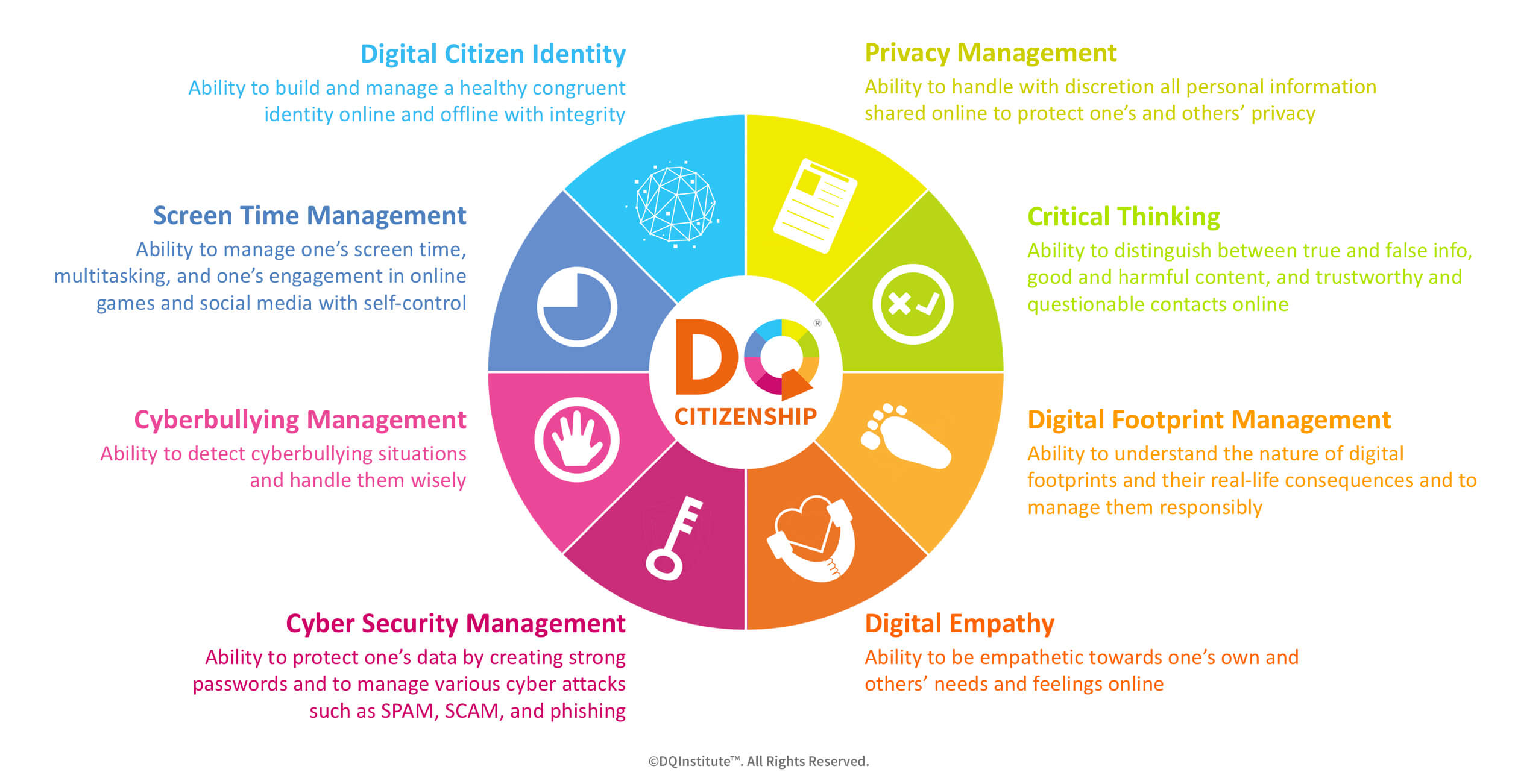● Cyber-risks help reporting system for children launched can detect a child’s exposure to various cyber-risks and provide opportunities to proactively intervene.
● Singapore and Australia will be the first countries to pilot the system through Public Private Partnerships and collaborations with the DQInstitute.
● In a 2016 DQ Study, about 60 percent of children who were exposed to cyber- victimization wanted extra help to handle their cyber issues.
Today, DQ Institute, a consortium-led partnership supported by the World Economic Forum’s Future of Information and Entertainment System Initiative is making net safety history. Alongside the governments of Singapore, DQ Institute has launched a pilot cyber-risks help reporting system for children. Completed through Pubic Private Partnership with Singtel Group, Singapore’s National Council of Social Service, TOUCH Cyber Wellness, Feiyue, and Australia’s Kids Helpline, this new system can detect a child’s exposure to various cyber-risks and provide opportunities to proactively intervene to help at-risk kids. Future of Information and Entertainment System Initiative is fostering such initiative which increases trust and accountability to ultimately improve societal well-being.
#DQEveryChild is a digital citizenship movement that addresses parents’ concerns about their children’s exposure to cyber risks launched worldwide in March 2017. The digital footprint starts from birth and children grow up immersed in the digital world. With such intense exposure to the digital world – what they do on the Internet, whom they interact with online – greatly influences their identity, well-being and development. This new system is an expansion of DQ Institute innovative digital intelligence education programme.

The help-reporting system can be triggered voluntarily by the child (via a request for support function) or automatically when exposure to risk factors is detected. The system will link the help-seeking requests from children, parents and/or teachers to a professional e-counselling/helpline organization or a law enforcement agency in each country. This means a timely and easily accessible avenue of support to the child in need will be available through the online platform, in collaboration with related government agencies, ICT companies and/or civic organizations. The system is available through DQWorld.net.
“The DQ Institute’s Cyber-risk Help System is a great example of how essential public-private partnerships are in addressing societal challenges. It takes this type of collaboration model to transform innovative ideas into working solutions. Based-on the results from the Singapore and Australia pilot, we look forward to seeing how the Cyber-risk Help System may evolve and be replicated in other countries.” shared Cheryl Martin, Head of Industries at the World Economic Forum.
In a 2016 DQ Study, about 60 percent of children who were exposed to cyber-victimization wanted extra help to handle their cyber issues. A 2015 DQ e-counselling study conducted by the National Institute of Education, Singapore also revealed that timely intervention is critical to enhance emotional well-being of children who are exposed to cyber-risks. This new system will address that need by ensuring that every child is not only connected online, but is also protected safely and securely from cyber-dangers while being educated holistically.
“We are very pleased to be working with DQ Institute over the past few years, leading to this important milestone which enables the digitisation of learning and asses0sment of children’s exposure to cyber risks,” said Andrew Buay, Singtel’s Vice President of Group Sustainability. “The partnerships between governments, private organisations and community partners will enable scale and consistency in reach and intervention.”
“As a community working with governments, private organizations and community partners, we can really empower our children to be good digital citizens, and also give them the vision and tools for the future,” said Dr Yuhyun Park, founder of the #DQEveryChild movement. “We believe that #DQEveryChild provides a comprehensive digital citizenship platform that addresses educators’ and parents’ concerns about their children’s exposure to cyber risks.”
Follow the Sustainability Development Impact Summit 2017 at http://wef.ch/SDI17


